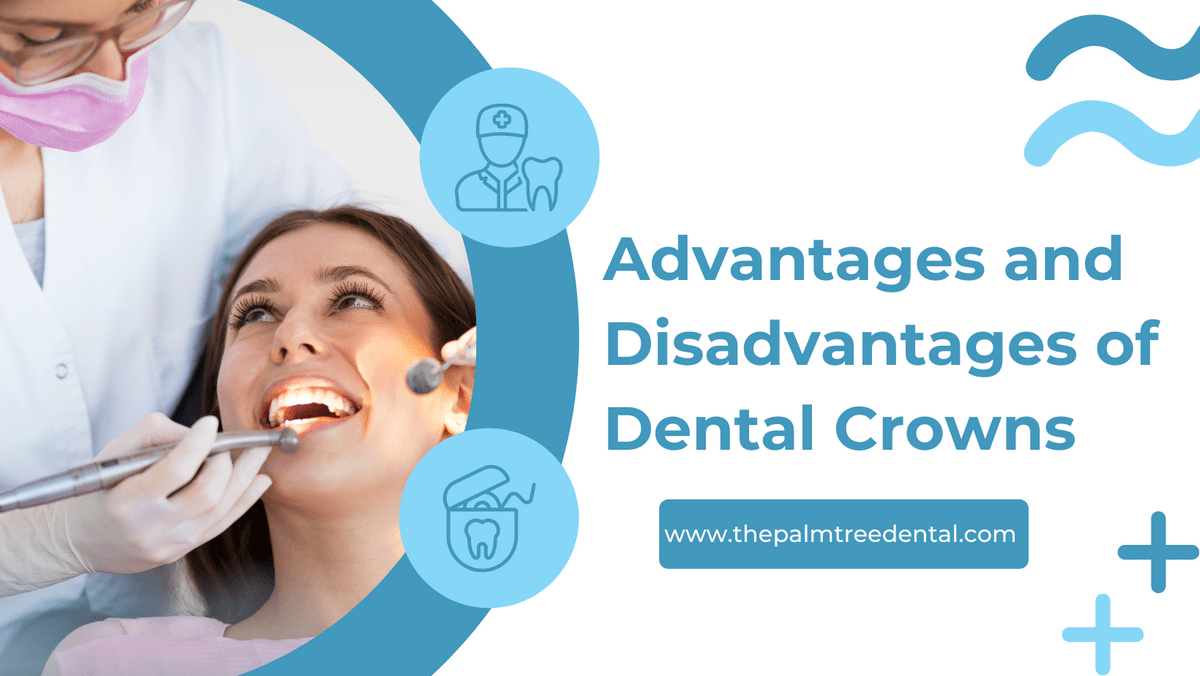Advantages and Disadvantages of Dental Crowns
Advantages and Disadvantages of Dental Crowns
In this blogpost, we will explore the advantages and disadvantages of dental crowns.
A dental crown is a restoration made of metal, porcelain, or ceramic that caps or covers a tooth. Crowns are used to restore teeth that are badly decayed, broken, or cracked.
They are also used to cover teeth that have been treated with a root canal. Crowns can improve the appearance of your smile and strengthen your teeth. However, they do have some drawbacks.
In this blog post, we will explore the advantages and disadvantages of dental crowns.

We will do our best to provide information clearly and concisely to allow you to make an informed decision regarding dental crowns.
The advantages of Dental Crowns:
1) They restore teeth that are badly decayed, broken, or cracked.
2) They can improve the appearance of your smile.
3) They strengthen your teeth.
4) Less invasive than other treatments, such as dental bridges. 5) They can sometimes last a lifetime with good care.
The disadvantages of Dental Crowns:
1) Can be uncomfortable during the first few days after treatment
2) The presence of a crown may make it more difficult to chew 3) They require good oral hygiene and dental care
4) They may cost at least several hundred dollars
5) Some people think they look unnatural
6) The tooth under the crown cannot be filed if the tooth gets too long
When to Consider a Dental Crown:
You should consider getting a dental crown when your dentist believes it will benefit you. Your dentist will likely recommend a dental crown if your tooth is badly decayed, broken, or cracked. Your dentist may also recommend a dental crown if you have undergone root canal treatment.
Sometimes it's not possible to save the original tooth. A large filling can sometimes be seen when smiling because it doesn't blend in with the rest of the teeth. If you are unhappy with the appearance of your tooth, this is another reason to consider getting a dental crown.